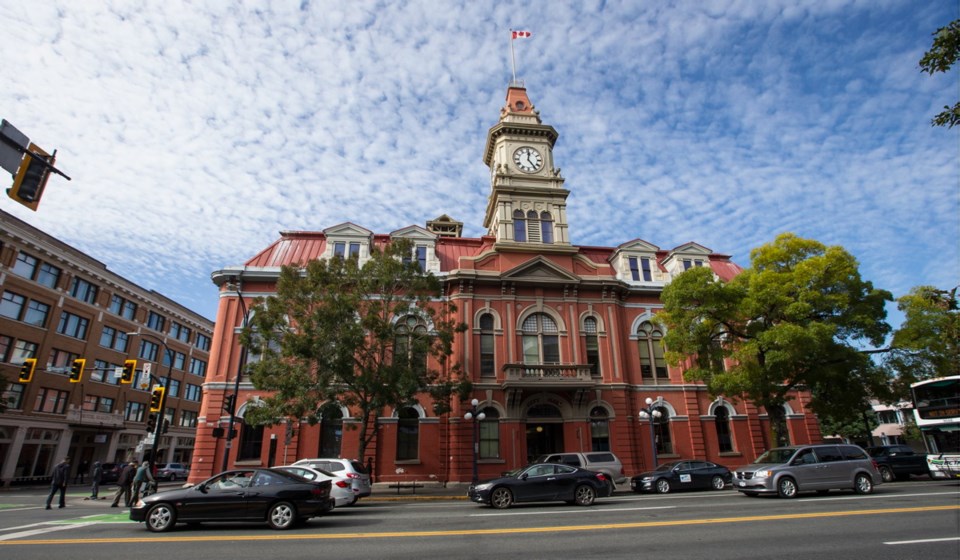Much has been made of the furious response from residents when Victoria city council proposed granting itself a pay raise. The scheme, floated by Coun. Ben Isitt, would have lifted the remuneration of councillors from $45,384 to $70,100 — the median pay earned by city employees. The annual cost to taxpayers would have been $205,600.
Of the 5,000 people who participated in an on-line survey, 86 per cent said they “strongly disagreed” with the proposal. Isitt then called the survey “unscientific.”
Well, and whose fault was that? As we noted in an earlier editorial, a statistically reliable poll could have been carried out by one of the country’s leading research firms for between $5,500 and $6,500. Had that been done, we’re guessing the disapproval rate would have been closer to 100 per cent.
But two other points have drawn less attention. The city is projecting a surplus of around $3 million, plus an additional $2.5 million from increased property tax revenues brought in by new development.
On that issue, 55 per cent of respondents to the survey said the additional tax revenues should be used to reduce the proposed property tax increase of 3.35 per cent, instead of being spent on various pet projects. And any surplus should be saved for future infrastructure development. Isitt and his colleagues have made no commitment to act on that advice.
Then there is the matter of previous years’ surpluses. In 2018 the city ran up a surplus of $4,544,000. Yet in that year as well, the property tax increase went ahead. None of the money was used to lower the burden on home and business owners.
Part of the problem here is lack of transparency in city budgets. The financial plan for 2020 runs to a whopping 878 pages. A document that long defends itself against the risk of being read.
But the deeper problem is that while council goes through the motions of public consultation, the process is largely a sham. By the time a draft financial plan has been assembled by staff and absorbed by council, the deed is as good as done.
The town hall meeting held last month, ostensibly to solicit feedback, was basically a snow job. Members of the public attending the event were presented with a variety of schemes.
Staff members outlined projects proposed or underway in terms that either presumed approval, or that reduced important issues to the banal and obvious.
Did you know that cities are hubs of creativity, innovation, culture and art? Or that 80 per cent of Canadians live in a city? Well, yes — but what has that to do with the property tax rate?
At no point in the three-hour, 20-minute meeting did the mayor or staff volunteer serious ways to save money, like cutting overhead or slimming management.
In properly run organizations, supervisors proposing a budget increase must also provide offsetting reductions, by way of economies or by trimming their sails.
Perhaps this happens behind closed doors at city hall. But few or none of these options are made public in a manner that would allow voters to make a choice.
It’s true that anyone making a presentation to council can suggest ways to save money. But few residents are knowledgeable enough to offer detailed insights.
The job of a truly accountable council is to place such options on the table in a visible and concrete manner, alongside proposed tax and spending increases. That way we get to make an informed selection.
But this entire process is not about giving voters a meaningful say. It is about going through the motions before arriving at a largely predetermined end point.
Councillors may feel this is a severe critique. But that’s what happens when you ask for a big pay hike. Your credibility dissolves.



